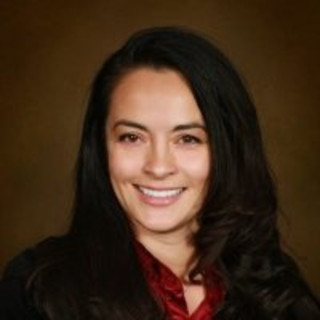
You can't always get what you want.
But if you try sometimes you might find
You get what you need.
-Rolling Stones
As a second year ICU resident I struggled to understand the nuance of end of life care. I often experienced great internal turmoil. I wanted to understand what it meant to “do everything you can.” I wanted someone to outline the exact steps involved. Instead, I learned to do what I needed to do.
Within an hour of being delivered to the surgical ICU I knew that I would be spending the majority of my night with Mrs. Grey. Fresh from surgery her vital signs signaled something was amiss. As the night-float ICU resident, my task was to keep her (and every other surgical ICU patient) alive until the day team arrived.
Around 1:30 a.m., I received the usual page summoning me to join my colleagues in the cafeteria for "lunch." I called my senior resident and explained that I didn’t feel comfortable leaving the ICU. I had ruled out hemorrhage and MI but Mrs. Grey was requiring an increasing number of medications just to maintain her blood pressure. With silent approval, offering no additional guidance, he wished me luck and advised me to get something to eat.
At 2 a.m., in response to her rocky post-operative course and anticipating further deterioration, I reluctantly called the patient’s daughter.
She responded, sleepy and slightly annoyed, “I was going to call when I woke up.”
I informed her of her mother’s critical state, “I think she will continue to decline this evening and feel that we will have to do CPR and shock her, is that what she would have wanted?”
Now fully awake. “She has a living will, she doesn't want to be on a machine, she doesn't have cancer. Can't you just do everything you can do?” her daughter pleads.
I assure her, “Yes of course. I just wanted you to know how she is doing.”
Panicked she explains, “I don't know when we should come tomorrow, my brothers were going to go to work. I don't want to call my brothers at this time in the night.”
Gently I respond, “You don't have to come here, I don't think we would do anything different. I just wanted you to know.”
Defensive she punctuates the pause, “Maybe you think I should be there. I will call when I get up.”
The line goes silent.
I thought, ‘Do everything you can do? What does that mean? What if everything I do isn’t enough?’ Feeling defeated, I realize the cafeteria would close in 30 minutes. I walked the less trafficked hallway that passes the hospital chapel. Allowing me to avoid any unwanted conversations and find sanctuary. The Chapel is the eye in the midst of my emotional hurricane. I feel swept up in the storm of my thoughts. I need the solitude of that tiny room illuminated by stained-glass windows to nowhere. As expected, I find the room empty. A large Bible sits atop a wood pedestal adorned with dusty, odorless roses. I enter seeking the ear of whatever God was listening and needing to hear the answer to my question.
My eyes are drawn to an open Bible passage.
“Even though I walk through the valley of the shadow of death, I will fear no evil, for you are with me; your rod and your staff, they comfort me.” Psalm 23:4.
I entered the eye of the storm. My anxiety, fear, and turmoil washed away and I somehow found calm. I knew I would do everything I could.
I made my way back to the ICU after purchasing a bowl of soup. Mrs. Grey’s nurse informed me that she had been stable. Momentarily, I was buoyed by the hope that she might survive the night. My hope lasted the time it took me to consume my soup. After which she rapidly slid off the ledge she had been traversing between life and death.
Her blood pressure plummeted, and her heart protested at the lack of blood flow. We administered medications to stimulate her heart and performed rib breaking compressions to circulate the medications. Meanwhile, her heart contemplated its rhythm. We repeated the cycle, medications, and compressions. I recall a respiratory therapist commenting to someone in the room that it was a waste of time and we should just stop. After three rounds and 30 minutes of compressions, I did.
Why three? Maybe because third time is a charm and four is futile? Maybe because somewhere in the medical literature it says that the likelihood of meaningful brain function after 30 minutes without oxygen is vanishingly low. I’m not sure. But I think it was that I just knew, I had done all I could.
Now that I had done all that I could, I had to document. As did everyone else involved. Unceremoniously, we dispersed to complete the tasks that had accumulated.
I called my attending to notify him of the death. Although I had informed him earlier in the evening of her grave condition, he sounded shocked. But grateful that I would call the family and inform them of her death.
Before making the difficult call, I planned to write my notes as a way to gather my thoughts. As I started to put pen to paper, the clerk informed me that I had a call. Annoyed at the distraction I asked who it was.
“I think it is Mrs. Grey’s daughter,” the unit clerk responded.
The hair on the back of my neck stood up.
The clerk handed me the phone, “Hello, Dr. Heyrosa.”
“Hi Doctor. It’s Kathy, Judy Grey’s daughter. I was calling to see how she is doing.”
I told her I was just getting ready to call her. I informed her of her mother’s passing and assured her that I had done everything that I could.
With tears in her voice, she admitted she already knew. My tears fell in silence. I offered my condolences. She thanked me for doing everything.
We hung up. I swallowed my tears. There was no time for sorrow. I had too much to do. I got back to my paperwork and waited for back up to arrive. But I was comforted by the knowledge that I did all that I could do.
Dr. Mary Grace Heyrosa has worked as a General Surgery locum tenens for the past 9 years and is now pursuing fellowship training in Cosmetic Surgery in Indiana. She is also a 2018–2019 Doximity Author.






